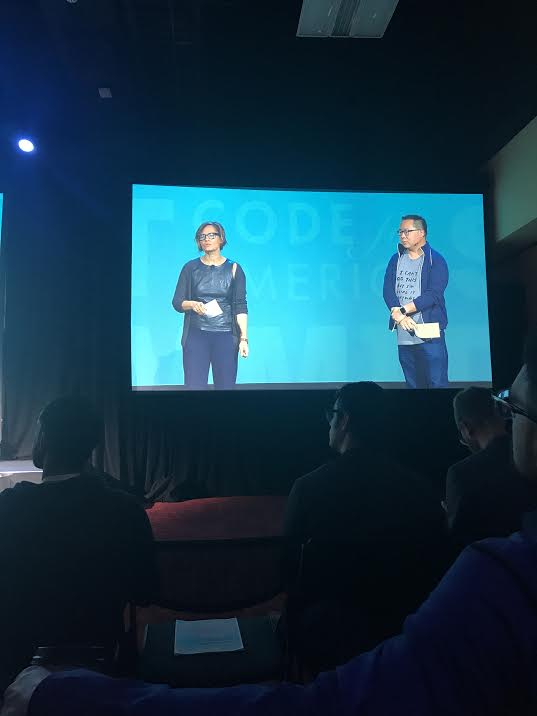“Government for the people, by the people can work in the digital age.” That’s how Code for America’s founder Jennifer Pahlka welcomed everyone to the 2018 Code for America Summit. This quote, in my opinion, embodies Microsoft’s dedication to empowering local government: Microsoft has long been a supporter of government that works for all.
I was honored this year to represent the Microsoft Civic Tech Fellows at the Code for America Summit in Oakland, Calif. from May 30 to June 1. Code for America’s mission is to provide government services that are simple, effective, and easy to use. They aim for solutions that work at scale to build healthy, prosperous, and safe communities. The summit is a gathering of government technologists as well as technologists who volunteer their time to Code for America’s brigades to improve civic life in their city. Microsoft has been a main sponsor of this conference for several years, as both organizations aim to increase democracy through technology.

As the sole Microsoft Civic Tech Fellow in Detroit, it was great to be around so many other civic-minded technologists. One of my main projects in Detroit has been partnering with local civic organizations, like the Detroit Public Library and the City of Detroit, for our Civic User Testing (CUT) Groups. It was so cool to learn about similar work happening all over the United States and in the U.K., including efforts to reform the Child Welfare System in California and modernize fishing regulations in England. It’s exciting to know that the CUT Groups program places Detroit on the cutting edge of best practices for designing civic technologies.
The work of local Detroit firm Civilla was highlighted during the opening session. Earlier this year, Civilla worked on a project to increase mobile system usability of the Michigan public benefits application process. The firm was chosen to partner with Code for America on this project because of their previous work, a two-and-a-half-year effort that decreased Michigan’s 42-page public benefits application to 18 pages or fewer. The goal of both Civilla and Code for America in this project was to design a system based on the needs of the user — a technique known as user or human-centered design. This work, being done in Detroit, is expected to widely inform other state benefit system redesigns across the country. It was great to see Detroit presented as a leader of civic tech on such a significant national platform as the Code for America Summit.
Another treat for me was running into so many friends at the conference. Having just graduated with my Master of Science in Information at the University of Michigan a month ago, I was inspired to see so many classmates and instructors from my program at the summit. It’s exciting to see and meet so many people who are dedicated to and passionate about improving government services entering the field.
The Code for America Summit provided an opportunity for people doing similar work in cities across the country to come together. Civic technologists, designers, and researchers shared their strategies, struggles, and triumphs. We learned from each other’s work, shared open source resources to bring similar project to our own communities, and highlighted the ways we have found for technology to support government in providing better services to residents. I’m excited by the fact that Microsoft continues to support the development of technical support and service delivery to increase equitable city services in the 21st century.

